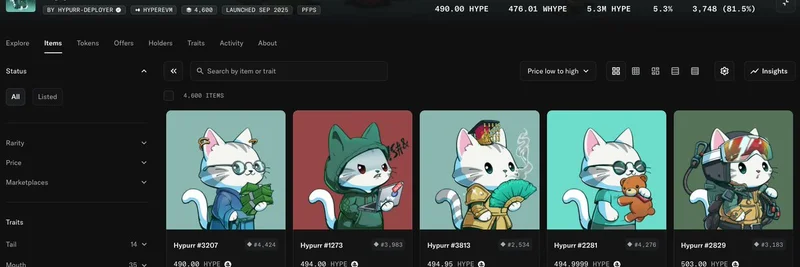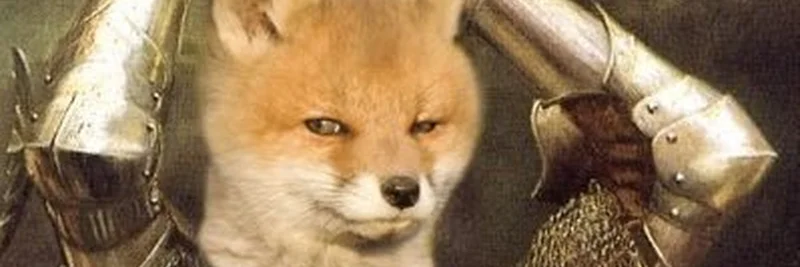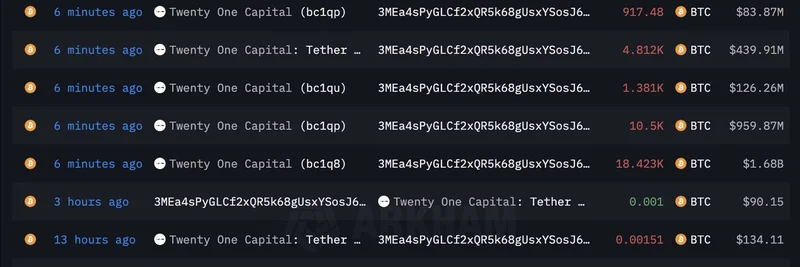In the fast-paced world of crypto, where "decentralization" is thrown around like confetti at a bull market party, sometimes it takes a bit of sarcasm to cut through the noise. That's exactly what Mike Dudas, a seasoned crypto investor and co-founder of The Block and LinksDAO, did in his recent tweet. If you're new to the space, Dudas is a big name—he's got his hands in ventures like 6th Man Ventures and even serves as a key opinion leader for Moonbirds. His post, which has racked up thousands of views and sparked debates, pokes fun at what "progressive decentralization" really looks like in practice.
Here's the tweet in question: Mike Dudas' tweet on X. In it, he lists four "signs" that your blockchain is decentralizing:
- Founder steps back to pursue other interests
- Lead investor exits via staking reward sales
- Treasury vehicle launch expands ownership to public markets
- Eco fund + incubation diversifies founder ownership from L1 to apps
At first glance, these might sound like positive steps toward a more distributed network. After all, decentralization is the holy grail of blockchain tech—spreading power away from central figures to the community. But if you read between the lines (and check the replies), it's clear this is satire. Dudas is highlighting how these moves often mask exits, dumps, or shifts that leave retail investors holding the bag. Let's break it down point by point, with some real-world context, and tie it back to meme tokens, since that's our bread and butter here at Meme Insider.
Founder Steps Back: Goodbye or Good Riddance?
When a founder announces they're "stepping back to pursue other interests," it can feel like a milestone. In theory, it means the project is mature enough to run without its creator. But in crypto, this often coincides with token prices dipping or controversies bubbling up.
Take DeGods, a popular NFT project on Solana that's had its share of meme-like hype. Earlier this year, founder Rohun Vora (aka Frank DeGods) resigned as CEO, citing burnout after three years. Sales surged temporarily, but the community was left wondering if it was a genuine handover or a strategic exit. In meme token land, this is common—think of anonymous creators who launch a coin, pump it via social media, then vanish, leaving the community to "decentralize" by default. It's "progressive" only if you squint hard enough.
One reply to Dudas' tweet captured this vibe perfectly with a GIF of someone yelling "So long, sucker!"—a not-so-subtle nod to how these departures can feel to holders.
Lead Investor Exits via Staking Rewards: Cashing Out Quietly
Staking rewards are a key feature in proof-of-stake blockchains like Ethereum or Solana, where users lock up tokens to secure the network and earn yields. But when lead investors start selling these rewards, it's often a signal they're reducing exposure without a big splash.
This ties into venture capital dynamics in crypto. Big players like Paradigm or a16z pour money into early-stage projects, then gradually exit through mechanisms like staking sales to avoid tanking the price. For meme tokens, which often lack formal VCs but have whale investors, this looks like early buyers dumping on retail after hype builds. It's "decentralizing" ownership, sure—but mostly by transferring wealth from newcomers to OGs.
Treasury Vehicle Launch: Public Markets Meet Crypto Chaos
Launching a treasury vehicle—think ETFs, funds, or tokenized assets—that expands ownership to public markets sounds democratizing. It lets everyday investors get exposure without diving deep into wallets and DEXs.
But Dudas' jab points to how this can be a way for insiders to offload tokens legally. Recent examples include companies like DeFi Dev Corp. rolling out Solana-based treasury franchises or even Bitcoin treasury plays by figures like Adam Back. In the meme token world, this manifests as projects creating "community funds" that mysteriously benefit founders more than holders. It's expansion, alright, but often at the expense of true decentralization.
Eco Fund and Incubation: From L1 to Apps Diversification
Finally, setting up an ecosystem fund or incubator to shift focus from the base layer (L1) blockchain to applications built on top. This diversifies the founder's stake, spreading risk across the ecosystem.
Sounds smart, right? But it can dilute the original project's focus, leading to fragmented efforts. For instance, Solana's ecosystem has seen tons of incubation for apps and memes, but critics argue it sometimes prioritizes quantity over quality. Meme tokens thrive here—projects like y00ts (tied to DeGods) started as NFT drops but evolved into broader plays. Diversification is great, but when it's a founder's way to hedge bets, it raises eyebrows.
What This Means for Meme Tokens and Blockchain Practitioners
At Meme Insider, we see this satire as a reminder to stay vigilant. Meme tokens, by nature, are hyper-decentralized from the start—often launched fair(ish) with no central team. But the "signs" Dudas lists mirror rugs, pumps, and dumps that plague the space. True decentralization isn't about insiders bailing; it's about robust communities, transparent governance, and sustainable tech.
If you're building or investing in meme tokens, use tools like on-chain analytics to track founder wallets and investor moves. Projects on Solana, Ethereum, or emerging L1s can learn from this: aim for genuine community ownership, not just lip service.
Dudas' tweet sparked laughs and debates, with replies ranging from accusations of "bullposting DeGods" to calls for more AI detection in comments. It's a perfect snapshot of crypto's self-aware humor. What's your take? Head over to the thread and join the conversation— just remember, in blockchain, decentralization is as much about actions as words.




